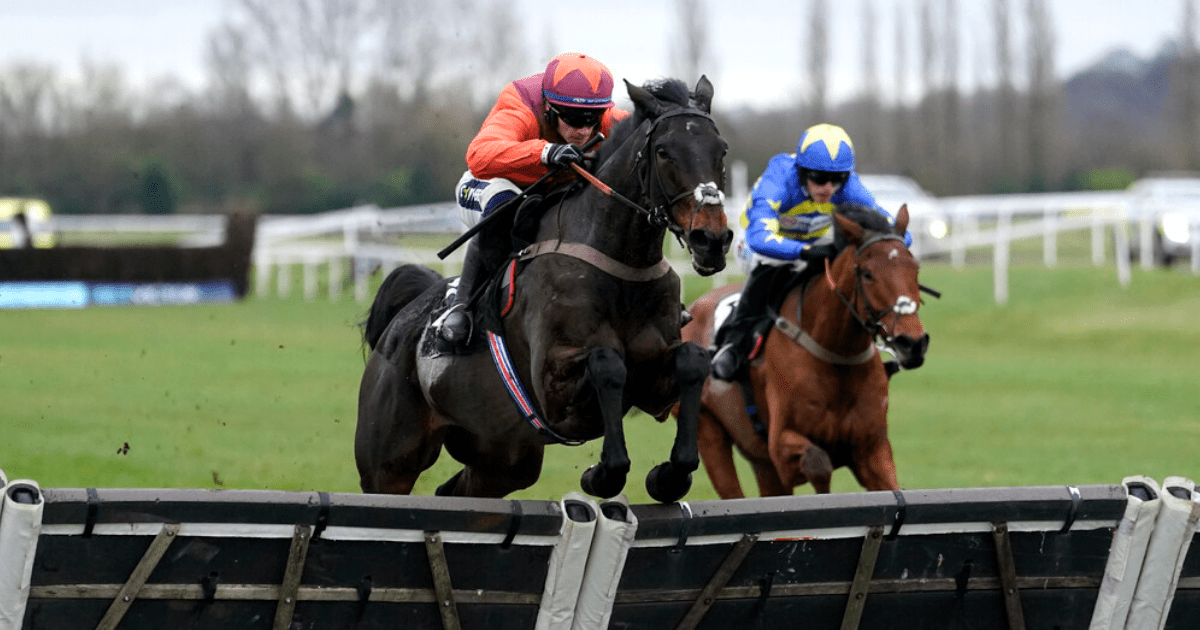Exciting Hurdler Gidleigh Park Faces Decision
Trainer Harry Fry is keeping fans on their toes as he plans to make a last-minute call on where Gidleigh Park will race at the upcoming Cheltenham Festival.
Two Possible Races for Gidleigh Park
The unbeaten six-year-old Gidleigh Park has the option to compete in either the Baring Bingham over two miles and five furlongs or the Albert Bartlett over three miles.
Trainer's Thoughts on Gidleigh Park
Gidleigh Park impressed with a strong performance at Newbury in December and maintained a perfect 4-4 record by winning the trial for the Baring Bingham at Cheltenham last month.
Harry Fry expressed, "I can’t commit right here, right now, but we have the two options and we will just have to keep an eye on the weather in the final few days beforehand."
Other Contenders at Cheltenham
In addition to Gidleigh Park, Fry's 'secret weapon' Might I is gearing up for the Coral Cup, showing promising form in recent workouts.
Fry commented, "One day it is all going to drop right for him, and he ran a great race off 3lb higher in the Martin Pipe last year."
Frequently Asked Questions
How often is it recommended that racehorses are trained?
It is important to tailor the frequency of training a racehorse according to its needs, level and schedule. In general, racehorses will have a daily exercise routine that includes walking, trotting, or cantering. This is followed by more demanding work, like galloping or breezing at least three times a weekly, to improve stamina. Rest days allow the horse time to recover from training and to avoid overtraining.
How do you maintain a racehorse’s mental well-being?
Mental health is just as vital to a horse’s performance as physical conditioning. The psychological health of racehorses is influenced by a variety of routines, regular turnout in pastures, mental stimulation and patient, gentle handling. By ensuring the horse is socialized with other horses in a stable, calm environment, you can prevent stress and behavioral problems.
What health precautions must be taken when training racehorses?
In order to prevent injury and illness, it is essential that racehorses receive the care they need. Regular veterinary examinations, vaccinations dental care and hoof management is essential. Equally important is monitoring the horse for signs of fatigue, strain, or discomfort. The risk of musculoskeletal damage can be minimized by implementing a progressive training regimen.
What type of diet is ideal for racing horses?
A racehorse’s diet must be high in quality and precisely balanced to meet the energetic demands of training and racing. The feed is a mix of commercially produced racehorse-specific feed, high-grade hay and grains such as barley or oatmeal. In addition, essential vitamins should be added to the diet in order to maintain peak performance and overall health.
What is the role of the jockey when training a racehorse?
Racehorses are trained by jockeys, who play an important role. Not only do they ride the racehorses during workouts and give feedback, but they help educate the horse on racing tactics. A good jockey will become familiar with the horse’s strengths as well as its weaknesses. This is vital for race preparation.
Does a racehorse need a certain type of shoe?
Racehorses typically wear specialized shoes called racing plates, which are lighter and thinner than regular horseshoes. These plates are designed to provide the required traction while also minimizing the weight. A racehorse-trained farrier will fit and select the right shoes for each horse based on its hoof shape and the racing surface.
Statistics
- The average cost to train a thoroughbred racehorse for one year can exceed $50,000, accounting for expenses related to training, boarding, and veterinary care.
- Gastrointestinal issues affect up to 90% of racehorses during their training, emphasizing the need for careful dietary management.
- The average racehorse reaches its peak physical ability between the ages of four to five, with some variation based on the breed and individual development.
- Statistically, less than 1% of thoroughbred foals born each year will go on to win a stakes race.
- The majority of racehorses in training are subject to an exercise regimen that includes being ridden six days a week.
- An extensive survey indicated that over 90% of racehorse trainers utilize swimming as a low-impact exercise in their conditioning routines.
External Links
horseracing.com
thoroughbred-racing.net
thoroughbredracing.com
racingpost.com
britishhorseracing.com
grayson-jockeyclub.org
How To
How To Choose The Right Diet For A Racehorse
A racehorse’s optimal diet involves finding the right balance between grains, forage and supplements. To maintain gut health, provide high-quality hay and pasture for the majority of the diet. Use grains like oats as an energy source for workouts. Adding electrolytes, vitamins and other nutrients through supplements can support your recovery and health. You can work with an equine diettician to customize the dietary requirements according to your horse’s metabolic and individual workload.

